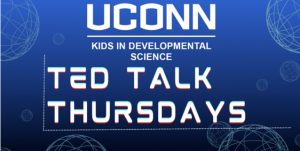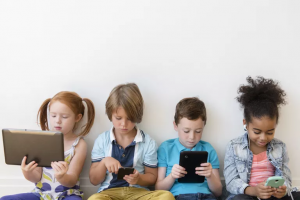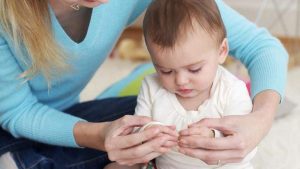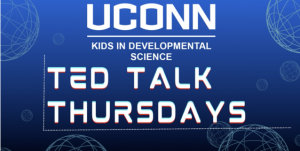
If I were to ask you what babies think, your response would most likely be nothing. We think of babies as having blank minds and slowly absorbing the world around them. According to research, babies are far more ahead than we first imagine. In her Ted Talk, Gopnik talks about different studies that showcase babies’ abilities to learn. She even goes as far as that babies are designed to learn due to their powerful brains.
She draws a comparison between babies and scientists in the sense that they both observe, hypothesize, experiment, and draw conclusions. While they do not do this to the same degree, the idea is still there!
Interested in learning more? Click this link here to watch!
Rachel Silverman
UConn KIDS, Research Assistant






